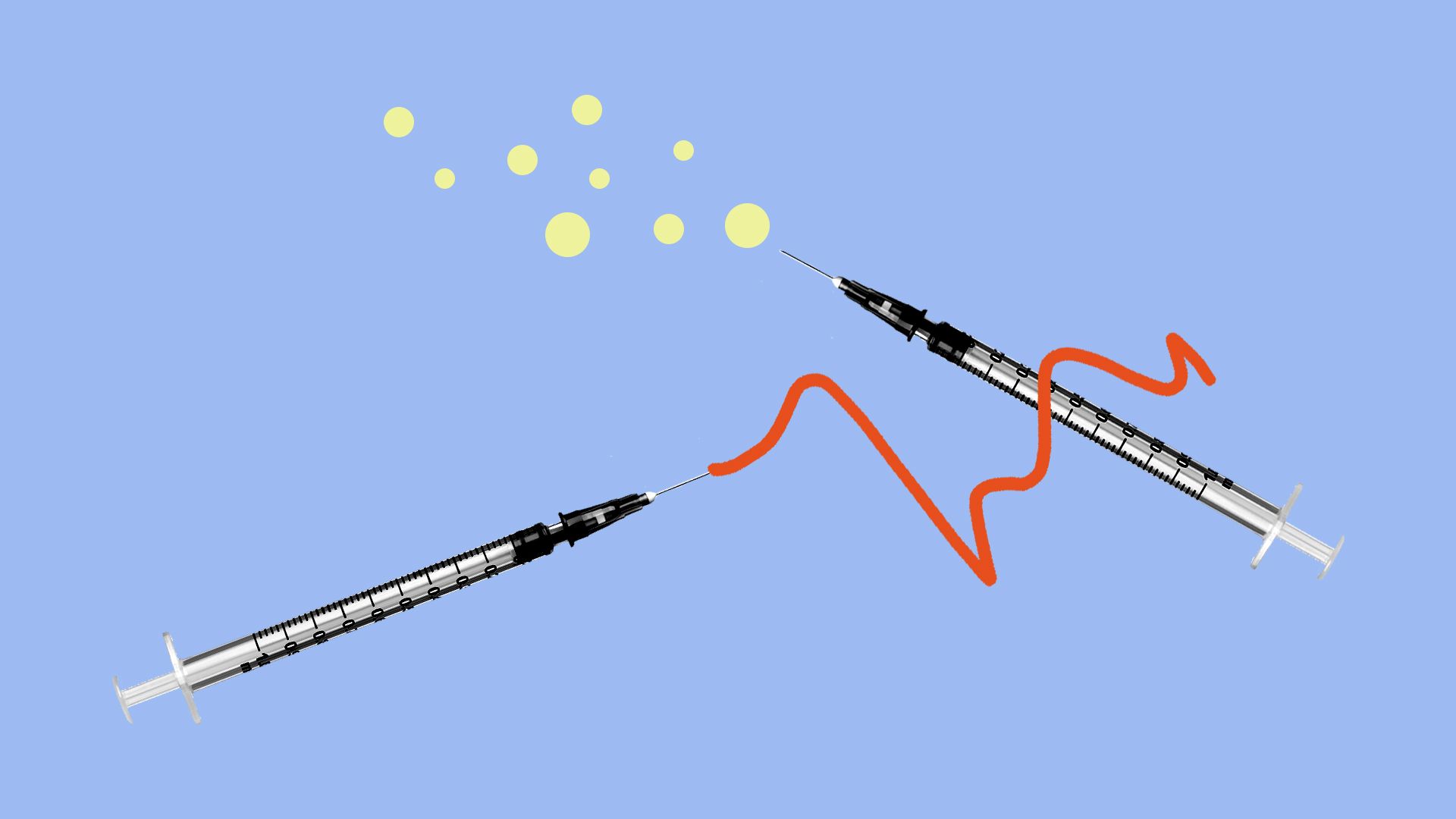A good news story from Davos
Add Axios as your preferred source to
see more of our stories on Google.

Illustration: Rebecca Zisser/Axios
DAVOS, Switzerland — Joint global efforts are finding it harder to win general support at the moment, but a nearly 20-year campaign to vaccinate children around the world was described as a success story at the World Economic Forum in Davos this week.
The good news: Since its formation at the World Economic Forum in 2000, Gavi, the Vaccine Alliance —a nonprofit that sells subsidized vaccines to the world's poorest countries — has helped to immunize some 700 million children against polio, cholera, measles and other diseases.
- By Gavi's calculations, that's helped avert 10 million future deaths.
- The number of children who die under the age of five has dropped by 58% since 1990, in part due to such immunization campaigns.
But, but, but: Roughly 1 in 10 children haven't received what are usually routine vaccinations for life-threatening diseases like diphtheria and hepatitis B.
- Migration and growing economic inequality will leave some of the world's poorest and most vulnerable living in middle income countries — which disqualifies them for most aid. That will make it difficult to reach those children, Gavi's CEO Seth Berkley told Axios.
- Getting to those people and introducing new vaccines, including one for typhoid in Pakistan and Zimbabwe, are the group's priorities, says Berkley.
The big picture: Gavi and other global health initiatives depend heavily on funding from the U.S. and bilateral organizations. "In a world of populism, there is nervousness about whether it will get re-funded," said Novartis CEO Vasant Narasimhan.
Go deeper: Read the full Davos Special Report
